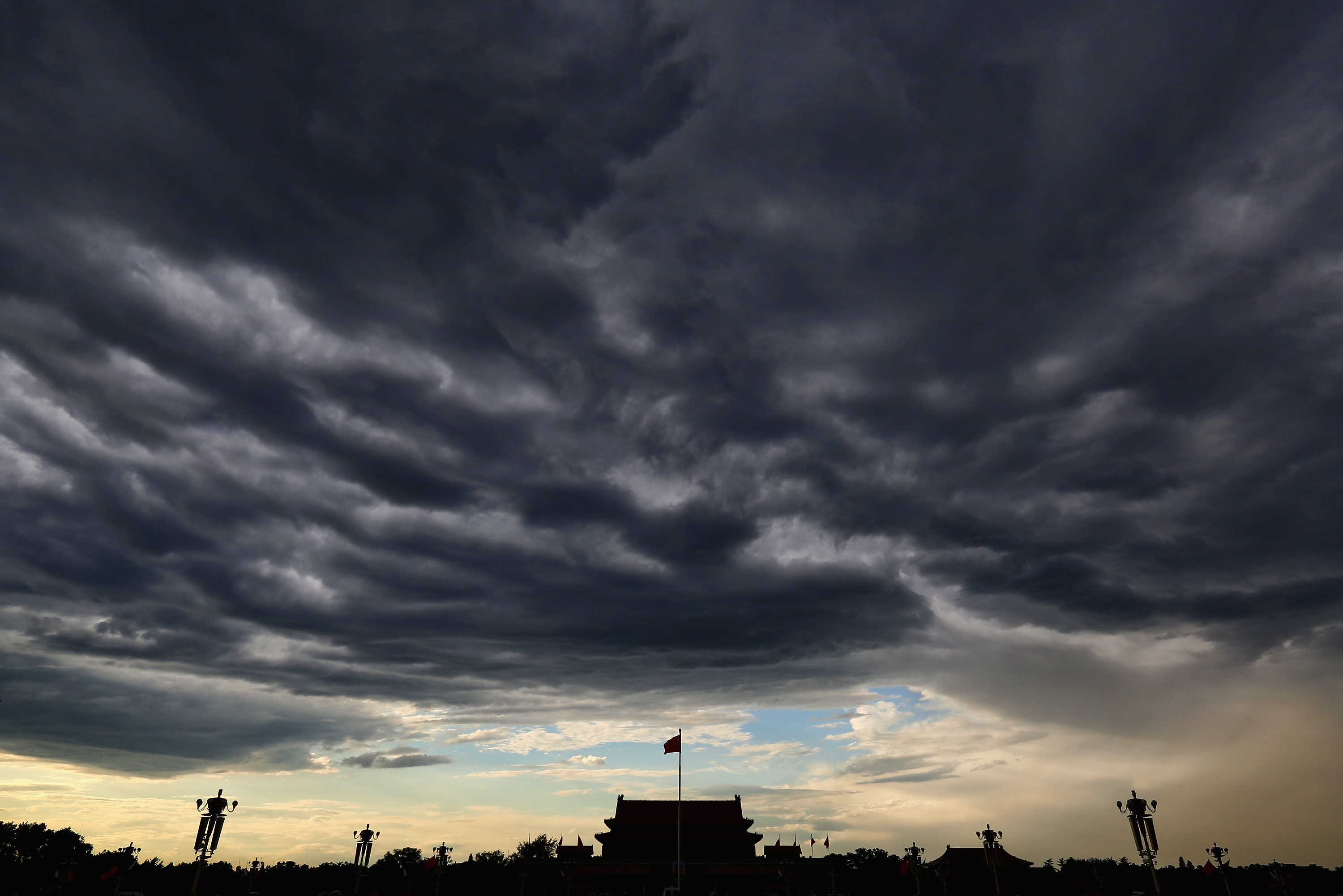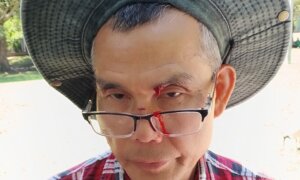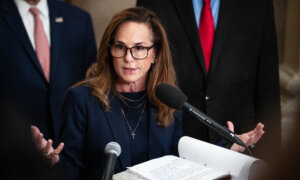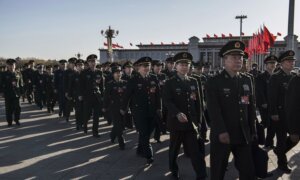News Analysis
Abnormalities in a recent Chinese Communist Party (CCP) meeting’s official statement may signal CCP leader Xi Jinping losing power, China experts say.
An official statement for the CCP’s Political Bureau meeting on Oct. 28, which contains several anomalies compared to past meetings, led to speculations of shifts in power within the regime’s upper echelons.
Three main anomalies were highlighted: the phrase “Xi Jinping Thought,” which is a standard inclusion in the past meetings, was absent; the commonly referenced expression of “Two Establishments” was also missing.
More importantly, it included an unusual call for party committees to “strictly implement democratic centralism, promoting leaders to be able to step up and down.”
The omission of standard expressions such as “Xi Jinping Thought” and “Two Establishments” cannot simply be explained as an editing error by the propaganda system, Tang Jingyuan, a U.S.-based China affairs specialist and senior commentator, told The Epoch Times.
The expressions were introduced during Xi Jinping’s leadership at the Sixth Plenary Session of the CCP’s 19th Central Committee in November 2021.
The slogan, which reads in full as “establishing Comrade Xi Jinping’s core position in the Party Central Committee and the core status of the entire Party, and establishing the guiding position of Xi Jinping’s Thought on Socialism with Chinese Characteristics for a New Era,” has been widely viewed as a step to further solidify Xi’s leadership within the Party.
The new call for top leaders to “be able to step up and down” also carries specific implications, according to Tang.
“It could suggest that Xi Jinping’s single authority is precarious and that the party might be returning to a model of collective leadership,” Tang said.
Frank Qin, a senior political and economic analyst, agrees that the wording indicates a diminished status for Xi.
“It suggests that significant and public power adjustments within the CCP are likely occurring. [What’s happening] now appears to be a gradual process of transition,” Qin told The Epoch Times.
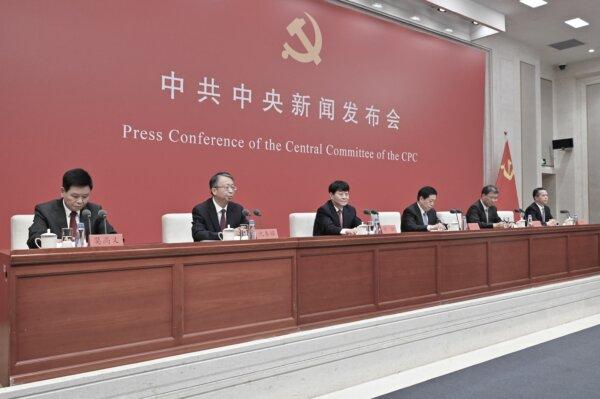
Officials attend a press conference for the Third Plenary Session of the 20th Central Committee in Beijing on July 19, 2024. (Adek Berry/AFP)
He noted another difference in the statement: the emphasis on “seriously implementing the decisions from the Third Plenary Session of the 20th Central Committee.”
The Third Plenary Session of the 20th Central Committee, scheduled on July 15–18, marked a significant turning point since Xi’s consolidation of power at the 19th National Congress in 2017 and signaled the beginning of a dramatic shift in the upper echelons of the CCP, Qin said.
“The meeting no longer solely emphasized loyalty to Xi Jinping himself, external struggles, a return to Maoist-style governance, or attacks on private enterprises. Instead, it began to stress reform and opening up, with a focus on centralized leadership—almost a 180-degree turn from the personal authoritarian trajectory of the past few years under Xi.”
Qin said it was precisely after the session that a series of unusual things happened within the CCP’s upper echelons, suggesting a reduction in Xi’s power.
The strange occurrences include state media Xinhua News Agency’s taking down of its special feature titled “Reformer Xi Jinping” during the session and the disappearance of Xi’s presence on the front pages of Party media after the session.
Who’s Gaining Power?
The signs of Xi’s losing power draw speculations on who will fill the remaining power vacuum, and if an intense struggle is bound to occur.
The analysts point to Zhang Youxia, the vice chairman of the CCP’s Central Military Commission (CMC).
From Oct. 24 to 26, Zhang visited Vietnam, where he had high-level meetings with Vietnamese Communist Party chief To Lam, as well as Vietnamese leader Luong Cuong and several high-ranking military officials.
Zhang also chaired two events on Oct. 14 and 15, a two-day conference urging military officials to study modern warfare and combat theories and a meeting with Russian Defense Minister Andrey Belousov. During the period, Xi toured Fujian, the southern coastal province facing Taiwan.
Zhang is receiving a lot of attention and seems to be emerging as a core figure within the party. The overall power within the CMC may be at his hands, China expert Wang He told The Epoch Times.
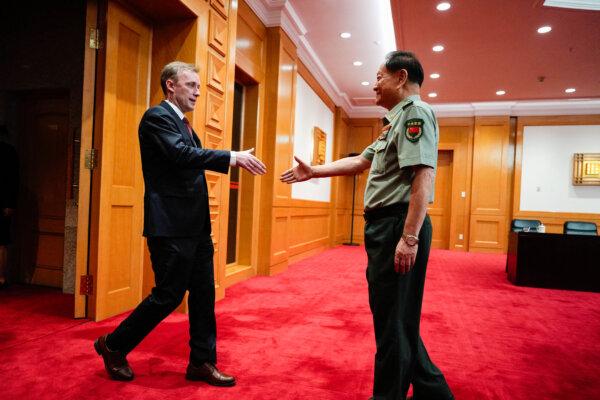
U.S. National Security Adviser Jake Sullivan (L) shakes hands with Zhang Youxia, vice chairman of China's Central Military Commission, before a meeting at the Bayi building in Beijing on Aug. 29, 2024. (Ng Han Guan/POOL/AFP via Getty Images)
Wang cited the example of former Chinese leader Deng Xiaoping, who regained power after the Cultural Revolution by ousting then-CCP Chairman Hua Guofeng, and taking control of the military.
“When Deng visited the United States in 1979, he only had the title of Vice Premier, yet he was received at the level of a head of state because the U.S. understood in advance that real power within the party rested with Deng,” Wang said.
While Zhang Youxia’s current position is similar to Deng Xiaoping’s back then, Wang noted that the key difference is that Zhang is a veteran military leader without government experience, as well as a “princeling,” who has a natural connection to the older generation of CCP leaders.
Zhang may collaborate with these political elders to promote democratic centralism and restore collective leadership, limiting Xi Jinping’s power, Wang said.
“However, they can’t just remove Xi Jinping all at once, as that could lead to the immediate collapse of CCP rule. So they still have him in the front while shifting towards collective leadership,” Wang said.
“That’s why the recent Politburo meeting’s statement included a rare mention of democratic centralism and pushed leaders to be able to step up and down. Who will step down? This is largely aimed at Xi Jinping.”
In the near future, the CCP may announce how it will address Xi Jinping’s power situation, but for now, various factions are still contesting behind the scene, Wang concluded.
Luo Ya contributed to this report.
